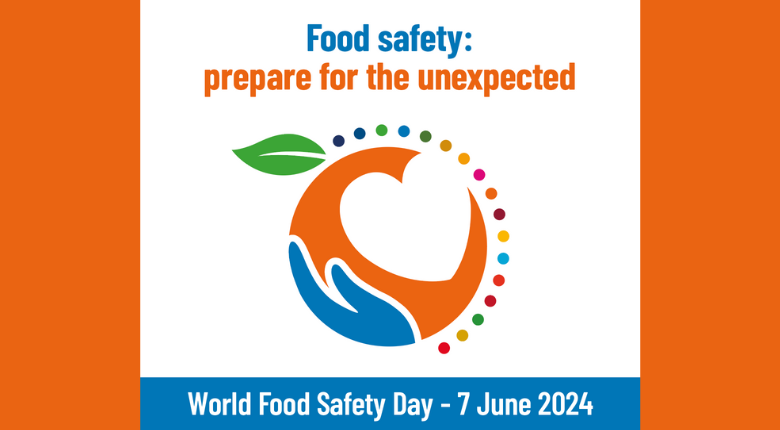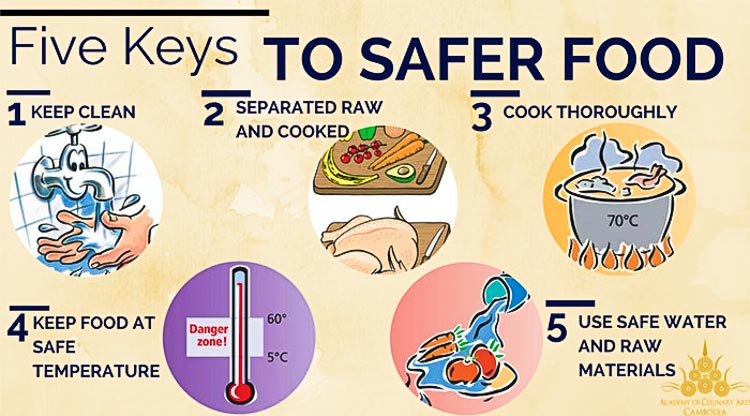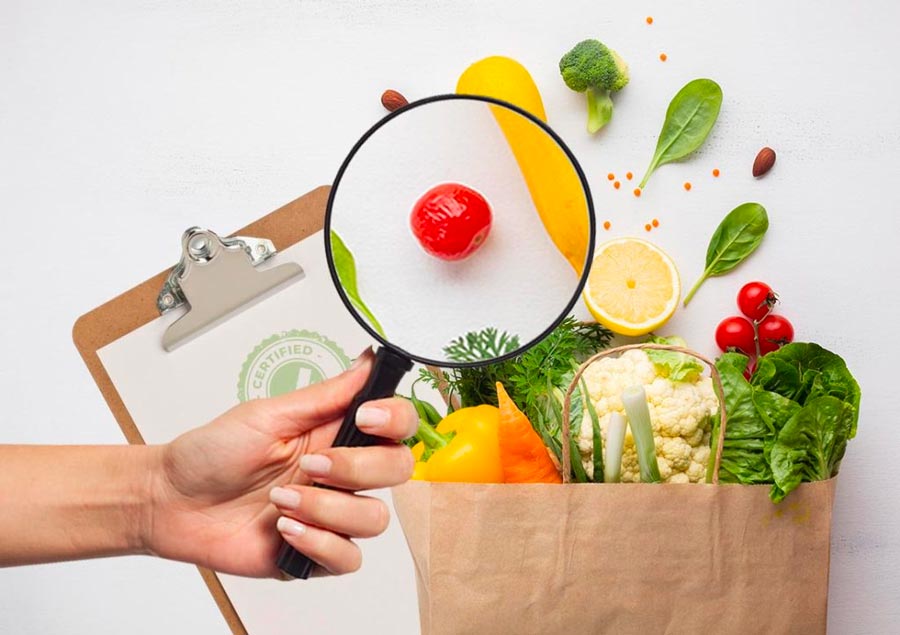What is Food safety?
The assurance that food will not cause harm to the consumer (when the food is prepared and eaten according to its intended use).
What is Food borne illness/poisoning?
Food poisoning occurs when you ingest food that is contaminated with germs, toxins, chemicals, etc.
Food safety involves storing, handling, and preparing of food carefully to reduce the spread of bacteria (and other contaminants) and minimises your risk of becoming sick, or causing illness in people who eat the contaminated food.

Access to sufficient amounts of safe and nutritious food is key to sustaining life and promoting good health. Unsafe food containing harmful bacteria, viruses, parasites or chemical substances causes more than 200 diseases, ranging from diarrhoea, kidney damage, brain functioning disorder to cancers. It also creates a vicious cycle of disease and malnutrition, particularly affecting infants, young children, elderly and the sick.
The individual suffering from food borne illness incur medical bill, income loss since he/she is unable to go to work, and pain and suffering from being sick.
World Food Safety Day 2024
World Food Safety Day on 7 June, every year, draws attention to food safety incidents. This year’s theme underlines the importance of being prepared for food safety incidents, no matter how mild or severe they can be.
Food safety hazards do not recognize borders. Globalization has led to a growing interconnection of food supply chains, thus increasing the risks that unhealthy foods pose and can quickly escalate from a local problem to an emergency of international level.

To be prepared for incidents that affect food safety, governments can commit to developing or updating national intervention plans for food emergencies, strengthening food control systems, increasing surveillance and coordination capacity, and improving communication with food industry and the public.
Food industries can improve their food safety management plans, share lessons learned and collaborate among themselves, and improve their communication with consumers.
Consumers need to be aware of how to report or respond to food safety incidents and understand the consequences of unforeseen events at home, preparing themselves to react appropriately.
It is better to prevent a food borne incident, epescially to business, than to cure the damage caused. Let's always prepare and prevent the unexpected health damages; food safety first!

Let's end our conversation by looking at some WHO key facts of safety
- An estimated 600 million – almost 1 in 10 people in the world – fall ill after eating contaminated food and 420 000 die every year, resulting in the loss of 33 million healthy life years (DALYs).
- US$ 110 billion is lost each year in productivity and medical expenses resulting from unsafe food in low- and middle-income countries.
- Children under 5 years of age carry 40% of the foodborne disease burden, with 125 000 deaths every year.
- Foodborne diseases impede socioeconomic development by straining health care systems and harming national economies, tourism and trade.
Reference
https://www.healthdirect.gov.au/food-safety
https://www.paho.org/en/campaigns/world-food-safety-day-2024
https://www.who.int/campaigns/world-food-safety-day/2024
https://reverehealth.com/live-better/10-ways-to-improve-your-entire-familys-nutrition/









